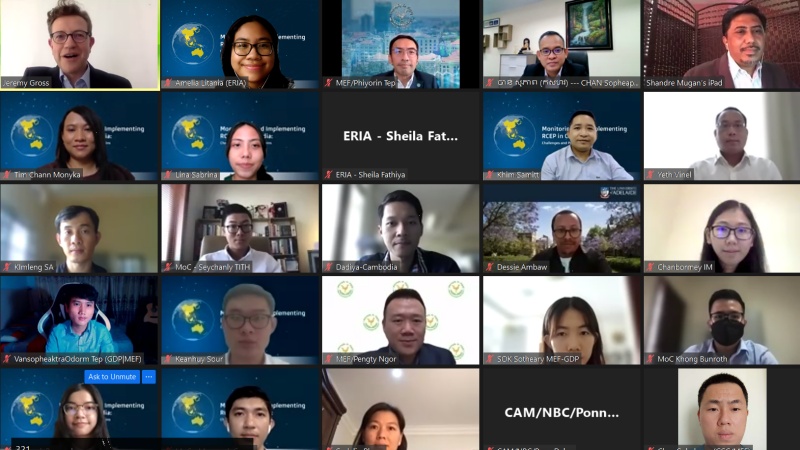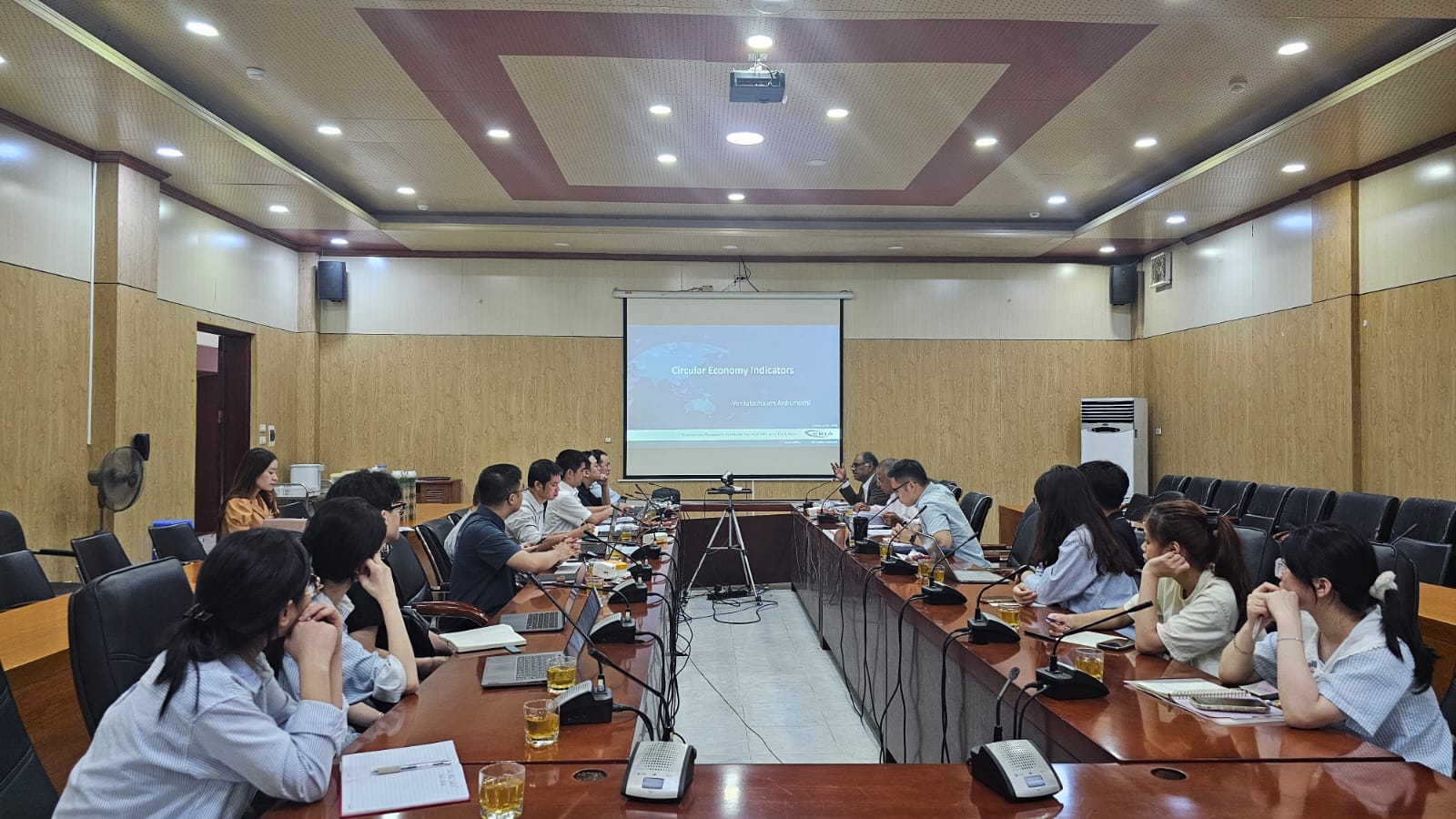Navigating the Challenges and Potential Gains in Implementing and Monitoring RCEP - Workshop for Cambodian Officials
Date:
1 October 2021Category:
NewsTopics:
Capacity BuildingShare Article:
Print Article:
Phnom Penh, 28 September – 1 October 2021: The Regional Comprehensive Economic Partnership (RCEP) is a critical and important framework for global trade and regionalism. The impact of RCEP will be significant for ASEAN LDCs, particularly Cambodia, as one of the fastest-growing ASEAN member countries now at a critical stage for positioning itself to higher global value-chain activities and emerging as an important focal point for regional and global value-chain activities in the region. However, there are several critical domestic gaps and key opportunities that Cambodia needs to explore and identify to fully benefit from the regional integration.
To provide research and policy capacity for government officials to implement and monitor the RCEP commitments on the domestic economy, the first of three workshops were held with the Ministry of Economy and Finance (MEF) of Cambodia. More than 30 officials joined this workshop, with participants from the Ministry of Commerce and National Bank of Cambodia as well as MEF.
The workshop was opened by H.E TEP Phyorin, Under Secretary of State, MEF, with opening comments also delivered by Mr Andreas Zurbrugg, Deputy Head of Mission, Australian Embassy, Cambodia. H.E TEP Phyorin highlighted the importance of RCEP and the significant opportunities for economic diversification it will bring in-line with domestic policy frameworks such as the Cambodian Industrial Development Policy 2015 -2025, Post Covid-19 Economic Recovery Plan, and Cambodia Digital Economy and Society Policy Framework 2021 - 2035. He also noted the role of RCEP to overcome domestic structural challenges in terms of integrating and diversifying the Global Value Chain (GVC) for garment and textile exports, manufacture and services sectors, and SMEs infrastructure.
Mr Andreas emphasized the importance to open the domestic market through RCEP, increasing demand, and resources for trade and investment for post-pandemic economic recovery, as well as using RCEP to bring structural transformation in the region.
The online workshop was facilitated by Professor Shandre Mugan Thangavelu, with guest lecturers Dr Dessie Ambaw and Mr Vutha Hing, both from the University of Adelaide. The workshop consisted of eight sessions and covered issues including the impact of RCEP on the domestic economy, trade indicators for the evaluation of policy, trade policy evaluation on regional integration, GVC and human capital as well as RCEP and pandemic recovery. Participants also discussed the specific case of Cambodia in GVC and key elements of domestic structural transformation in Cambodia. The second workshop, for the same participants, will be held in November.








